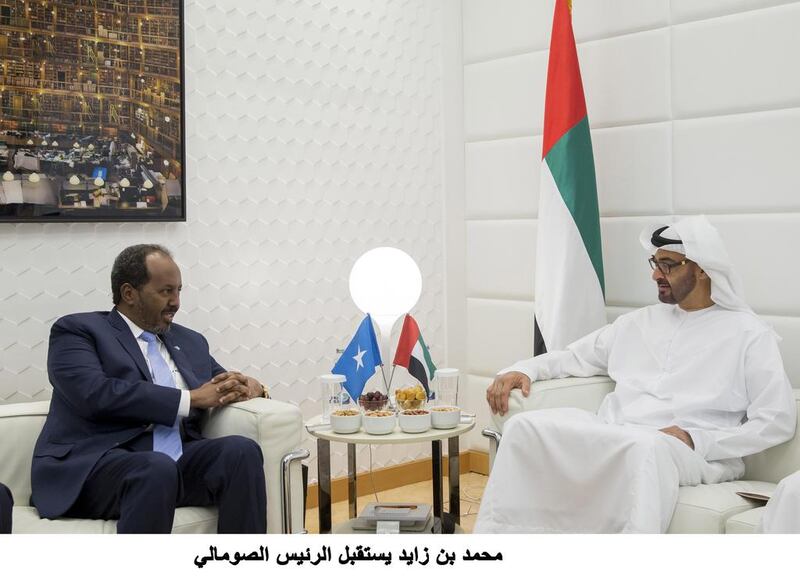Once dubbed “the world’s most failed state”, Somalia has been working hard to throw off this title, despite the fact that the mythology remains all-pervasive. This is due in part to an uncertain security situation that has fed the unwillingness of international policymakers and journalists alike to spend significant periods of time in the country.
Somalia is one of the 10 least developed countries in the world. We emerged just two-and-a-half years ago from 22 years of civil war. We play host to the brutal Al Qaeda affiliated Al Shabaab. Only 42 per cent of the children who should be in school are. More than 1 million internally displaced people are waiting to be re-homed. UNHCR predicts an influx of around 100,000 refugees from Yemen to northern Somalia. Literacy rates hover around 40 per cent. Unemployment sits at 60 per cent. Around 70 per cent of our population is under 40.
All this means that in Somalia almost everything is a priority: from security, political inclusivity, health care, education and private sector development, to basic economic reform. We face the challenge of building institutions for government and governance, while needing to deliver tangible benefits for Somalis: schools, hospitals, roads. We are doing this while fighting a war against terrorists on our own soil.
And we are doing this. In the past two years the government has focused on reopening ministries, developing laws, activating policies and laying down the groundwork for stability and ensuing reform. Piracy has all but disappeared. Around 75 per cent of Somalia has been liberated from Al Shabab. More than 75,000 children have been enrolled in school. The sea ways and airport are fully operational. More than 50 kilometres of roads have been built. A comprehensive mapping of Somalia’s natural resources has been undertaken. The private sector continues to grow.
We are not so naive that we don’t consider that grave issues still confront us. We must form a unified country, free of extremists. We must ensure a strong constitution that safeguards all Somalis. We must train, equip and integrate to ensure an armed forces that is capable of maintaining the security of Somalia. We must ensure that development and prosperity benefit all.
But it seems that sometimes we’re expected to get there before we’ve undertaken the journey. We’re judged only against an arbitrary end-point rather than against an understanding of where we’ve come from and our willingness to persevere.
We do not want to repeat the mistakes made by others. Perhaps this means we may take some time. Perhaps this means we may fiercely hold on to our right to self-determination. Perhaps this means that we seek to do things properly, not just quickly.
It is worth remembering that democracy is not new to Somalia. In 1967 voters elected a democratically appointed president, Aden Abdullah Osman. He handed over power to the current prime minister’s father, Dr Abdirashid Ali Sharmarke. He was the first African leader to ever peacefully hand over leadership of an African country.
I think it’s fair to say that Somalia as a country may have deserved the “failed state” label, but the people of Somali never failed. We recognise the brave resilience of Somalis who stayed through the years of civil war, working the soil, fishing the oceans, opening small businesses, caring for their families.
We welcome those bright young Somalis whose families fled when they were children and who are now returning home to play a role in ensuring a better future for their own children.
We acknowledge our international friends and partners who see Somalia as an opportunity to make a difference. We appreciate the generosity and support of foreign governments who are funding the development and reconstruction of Somalia.
In particular, we offer our deepest thanks to the Government of the United Arab Emirates. In our darkest hour, when we were seen as being too risky for most, the UAE stepped in.
The UAE was one of the first countries to establish a permanent embassy here, and the UAE ambassador has championed our needs tirelessly. The UAE has trained our soldiers, provided a military academy of the highest quality, financed health care, built wells in places where Al Shabab destroyed them and taken on various significant infrastructure projects. We salute the UAE’s friendship. It was sorely tested earlier this year, when the UAE convoy was ambushed by Al Shabaab, but in testament to the UAE’s bravery and friendship, it has not been deterred from continuing to support the future peace and prosperity of Somalia.
We are not daunted by the task ahead of us. We have all the reasons in the world to get it right. With an unparalleled position as the bridge between Africa and Arabia, the longest coastline in Africa, vast ocean resources, valuable mineral deposits, viable oil and gas opportunities, solar and wind power potential, a young, ambitious population and a determination to make a mark, we are confident the days of “saving Somalia” will soon be over.
Hassan Sheikh Mohamud is the president of Somalia





